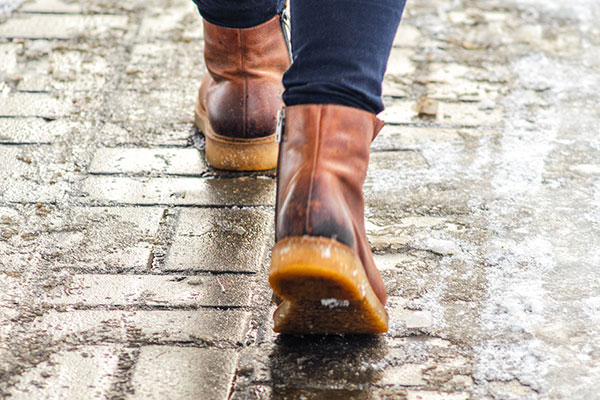
We tend to think summertime is the season we should be concerned about dehydration due to warmer temps. However, did you know it’s just as vital to maintain adequate hydration during those frigid winter days? Lauren Mullins, RDN, LD, clinical dietitian, Parkview Health, explains why staying hydrated during colder temps is just as necessary.
Water is an essential component and makes up nearly 60% of your body weight. Your body depends on water to survive as well as regulate essential everyday functions including maintaining homeostasis, transporting nutrients, removing waste products and hydrating tissues and organs. A lack of water can increase your risk of developing kidney stones, urinary tract infections, constipation and even dehydration.
Every time you breathe, perspire, urinate or have a bowel movement, water is lost. For this reason, and proper body function, it’s imperative that you replenish your body’s water supply through the consumption of food and beverages containing adequate amounts of H2O. The recommended daily water needs vary from person to person and depend on a few factors including:
- Activity level: If you are exercising or partaking in any activity that makes you sweat, you must drink extra water to replenish the fluid loss. Make sure you’re drinking water before, during and after your workouts. Also, sports drinks can be a great way to replace electrolytes after moderate to high-intensity exercises.
- Environment: Where you live, or travel, can make a big difference too. Hot or cold weather and high altitudes can all affect your body and lead to dehydration if you aren’t drinking enough water.
- Overall health: Most healthy individuals, can easily stay hydrated by drinking water when they feel thirsty. For others, that may not be enough due to an illness or health condition that may require more or less fluid intake based on their specific needs.
For example, someone who is pregnant, breastfeeding or has a health condition, may have different fluid needs compared to an average, healthy adult. According to the Mayo Clinic, the daily intake for women is 2.7 liters or 91 ounces and the daily intake for men is 3.7 liters or 125 ounces. These daily values include water and high-moisture foods such as watermelon, soups, fruits and vegetables. In fact, foods with increased water content can account for 20% of your total water intake.
How much water is too much?
There’s no specified limit for daily water consumption, however, water toxicity is a possibility. Normal functioning kidneys can filter more than 0.7 liters of fluid per hour, but when someone begins to consume more than 1 liter per hour, for a prolonged period of time, water intoxication can occur. Symptoms of water toxicity include hyponatremia or low sodium levels, head pain, cramping, nausea, vomiting, drowsiness and fatigue. While death by overhydration is rare, it can happen and it’s important to seek medical attention if drowsiness or seizures occur.
Signs of dehydration
In the colder weather, it’s more difficult to notice when your body is sweating. Perspiration combined with the extra layers of clothing and drier air can cause our bodies to become dehydrated without us even noticing. That’s why it’s important to drink water throughout the day. Staying hydrated through the winter can boost your immune system and give your body the support it needs to fight off infection. Drinking water and staying hydrated can also help you stay warmer in the winter months. Your body uses water to help maintain a temperature balance and when you aren’t adequately hydrated, your body can become cold.
Whether you choose to engage in physical activity or not, knowing the signs and symptoms of dehydration is important. Signs that you may be dehydrated include thirst, flushed skin, dark colored urine, dry or sticky mouth, headache, muscle cramps, dizziness, dry skin, and rapid breathing or heart rate. Infants and the elderly are at the highest risk for dehydration. You should seek immediate medical attention if you’re experiencing decreased urine output, fever over 101F but less than 103F, diarrhea for more than 2 days, weight loss, seizures, difficulty breathing, and chest or abdominal pain. When too much water has been lost, our bodies get out of balance and typically need a combination of fluids, like electrolytes and carbohydrates, to rehydrate.
Ways to stay hydrated
A few healthy ways to increase your daily water intake include:
- Carry a refillable water bottle with you and refill when necessary
- Add a squeeze of fresh fruit to your water for flavor variety
- Make water your drink of choice for meals and snack times
- Avoid sugary beverages such as soda or energy drinks
- Try making half of your plate fruits and vegetables, which is an easy way to incorporate extra fluid at mealtimes.
With these tips, you can be successful in your efforts to stay hydrated and healthy throughout the winter months.




